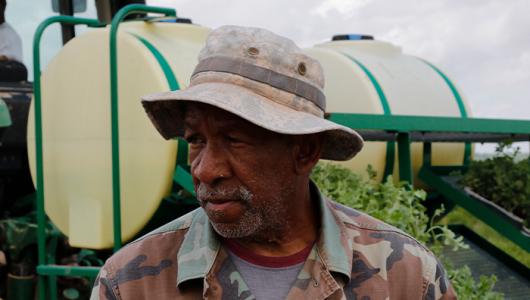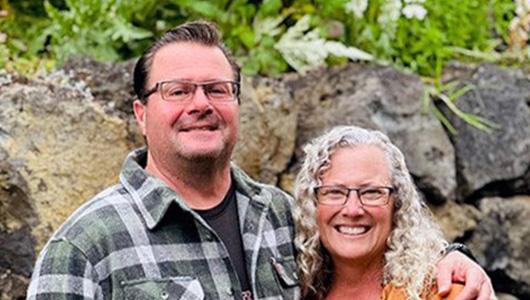This Friday meet Andee and Lindsey Stevens of Happy Hens Homestead in Booneville, Kentucky. The couple wanted to create a simple, healthy, and sustainable lifestyle for their family, and a great environment to raise their kids in. These goals led them to establish the farm in 2014.
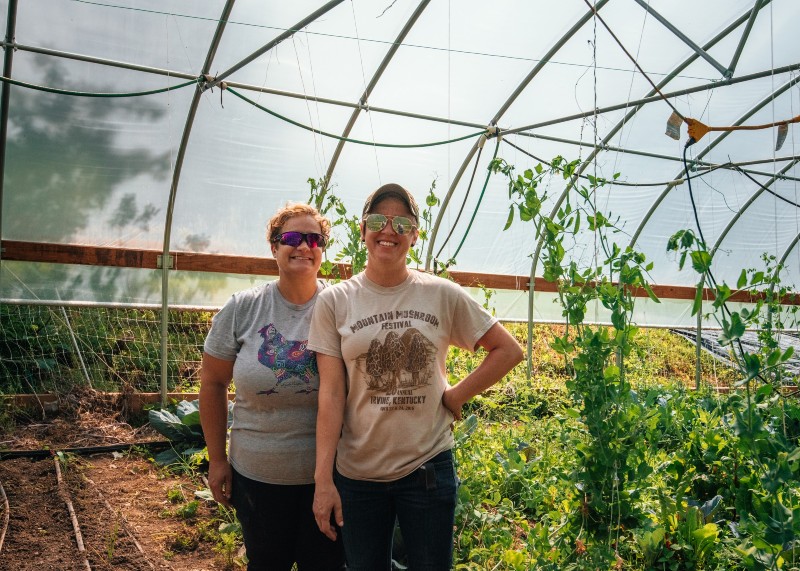
“Initially we began our little farming adventure to feed our family,” said Andee. “It spiraled into growing, baking, making homemade soaps and jams for family and friends, then on to sell to the greater public.”
Revitalizing the Operation
Happy Hens Homestead was once a tobacco and cattle farm with major soil health concerns. With sustainability and conservation in mind, Andee and Lindsey began rotationally grazing goats, utilizing litter from their chickens, and established an on-farm composting operation to revitalize their soil.
With assistance from USDA’s Natural Resources Conservation Service, they have turned their farm into a diversified and productive operation.
“We didn’t know about NRCS until we moved to Owsley County,” said Lindsey. “With NRCS we have been able to install two high tunnels and create a water safety plan.”
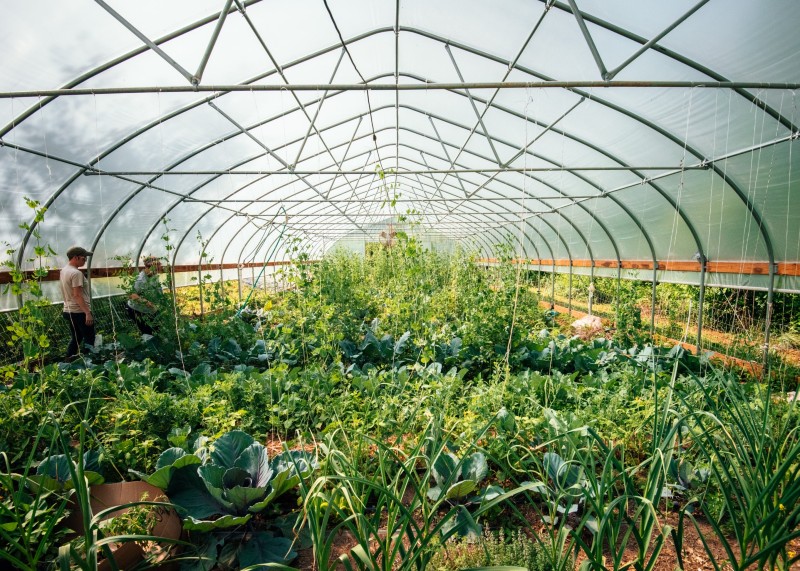
They added their first high tunnel in 2018 through the Environmental Quality Incentives Program, and the second in 2020 while cooperating with NRCS through the Regional Conservation Partnership Program. These high tunnels allow the Stevens family to utilize a rainwater catchment system on the property for irrigation.
“The high tunnels have been one of the best additions to our homestead,” said Andee. “Being able to control growing conditions more has improved the quality and increased the amount of produce we can grow. Beginning the season sometimes a month earlier and extending the season by a month is the best benefit by far.”
With high tunnels and conventional techniques, Happy Hens Homestead is producing a variety of crops including peppers, spring and fall greens, berries, heirloom tomatoes, herbs, rhubarb, peas, and green beans. They also raise chickens for eggs and goats for milk.
The couple sells their products directly to consumers on their farm and online, at multiple farmers markets, and at local restaurants. They also offer a few Community Supported Agriculture programs throughout the year.
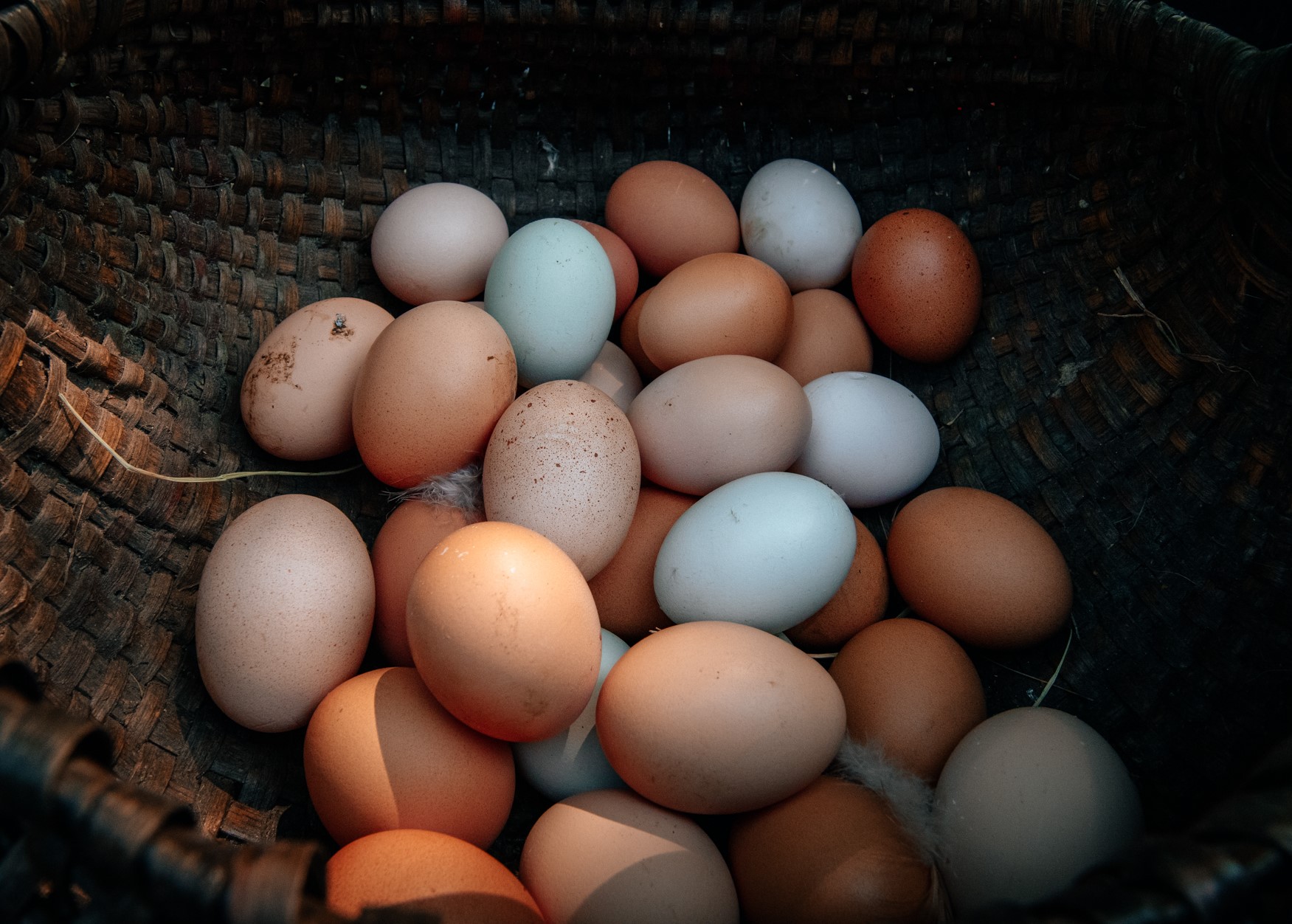
Continuous Improvement
The future is bright at Happy Hens Homestead, and additional improvements are planned. Upcoming projects include planting additional native grasses for grazing, installing solar panels to power their high tunnels, and improvements to wetland and forest wildlife habitat.
“We believe if you are not learning then you are not improving,” said Lindsey. “We strive to fill our minds with ways to make our farm better to serve our family and community.”
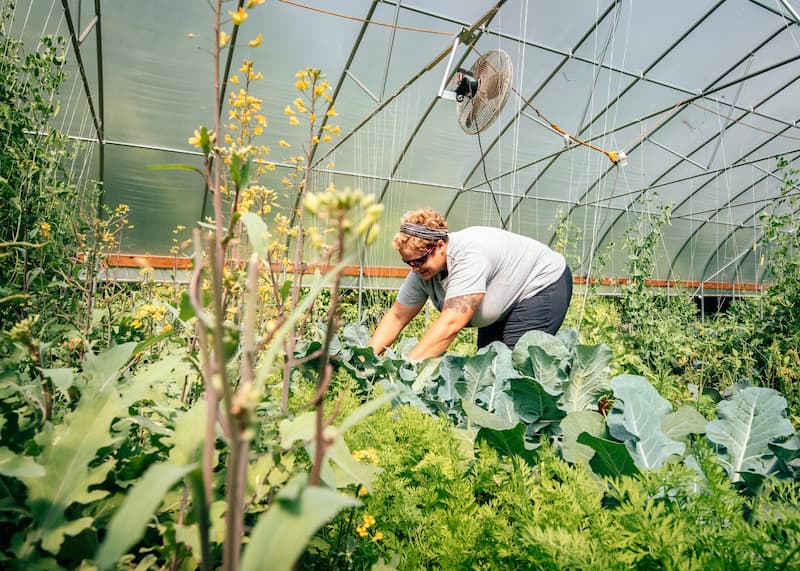
Andee and Lindsey plan to add more high tunnels to the operation, with hopes to hire a full-time staff member to help keep up with the growing demand. Having started a herd of sheep this year, they plan to continue to build upon the herd and sell their meat in the future.
“We have fallen in love with the sheep, just as we did with our goats,” the Stevens said. “The planning and learning of new growing practices are near to our hearts and we always look forward to that.”
More Information
Visit local farms, ranches, forests, and resource areas through our Fridays on the Farm stories. Meet farmers, producers and landowners who are working to improve their operations with USDA programs.
USDA offers a variety of risk management, disaster assistance, loan, and conservation programs to help producers weather ups and downs in the market and recover from natural disasters as well as invest in improvements to their operations. Learn about additional programs.
For more information about USDA programs and services, contact your local USDA service center.
Justin Pius and Lisa Taylor are on staff for NRCS in Kentucky.

